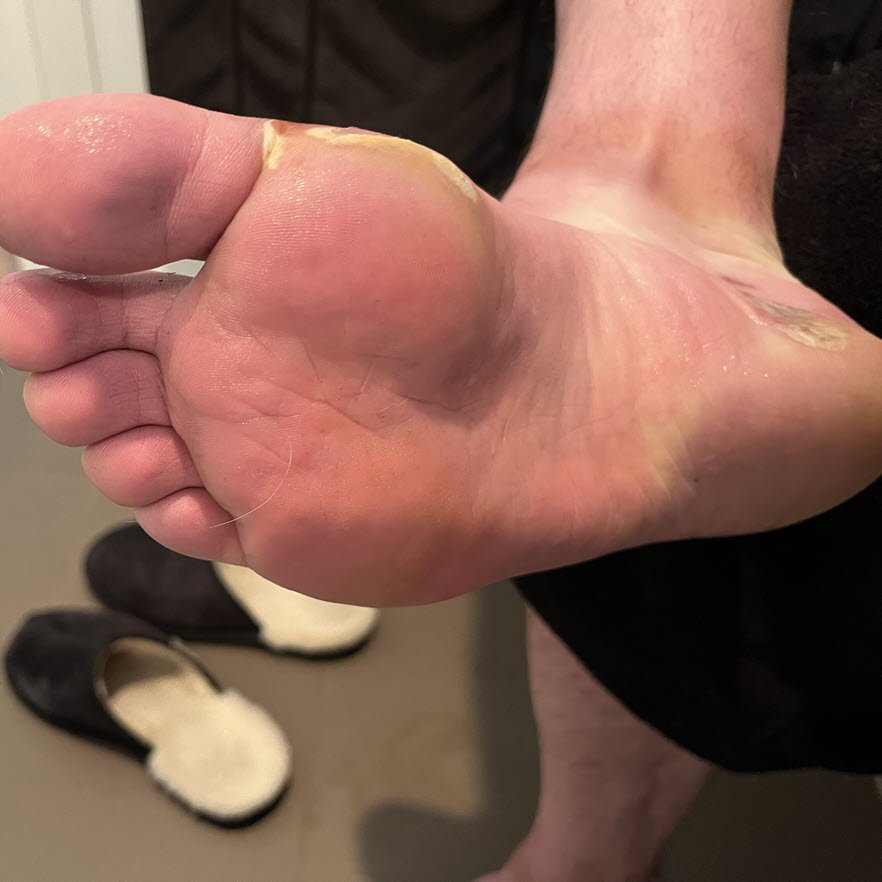Recognizing the Source of Excessive Sweating and Its Influence On Life
Excessive sweating, also referred to as hyperhidrosis, is a problem that impacts a substantial part of the populace, yet its hidden causes and effects on everyday operating stay rather enigmatic. While it is generally understood as a physiological response to regulate body temperature level, the triggers for excessive sweating can differ extensively among individuals, encompassing not just physical elements but additionally emotional and mental components. The impact of this condition prolongs past simple discomfort, commonly affecting social interactions and total top quality of life. By diving right into the origin of hyperhidrosis and discovering its diverse results, a deeper understanding of this pervasive problem can be gained, clarifying the complexities that people coming to grips with extreme sweating navigate on an everyday basis.
Physiology of Sweat Glands
The guideline of sweat manufacturing, a crucial physical process, is mostly controlled by the activity of sweat glands distributed across the human body. Sweat glands are categorized into two major kinds: eccrine and apocrine glands.
When the body temperature level rises, either due to physical task, high temperature levels, or emotional anxiety, the nerve system activates the gland to create sweat. This sweat is made up largely of water and electrolytes like sodium and chloride. The process of sweat production is necessary for maintaining the body's internal temperature within a narrow, ideal array, highlighting the essential function sweat glands play in human physiology.
Triggers for Excessive Sweating
In comprehending the source of excessive sweating, it is critical to determine the triggers that can cause this physiological feedback. Excessive sweating, likewise understood as hyperhidrosis, can be prompted by numerous elements, both environmental and physiological. One typical trigger is psychological anxiety or anxiety, which can stimulate the body's gland to create more sweat than is necessary for cooling. Physical exertion, high temperatures, and spicy foods are additionally known to trigger extreme sweating in individuals prone to this problem. Furthermore, specific medical conditions like hyperthyroidism, diabetic issues, or menopause can add to too much sweating too.
In addition, medications such as some antidepressants, opioids, and certain supplements can also function as triggers for hyperhidrosis. Understanding these triggers is essential in managing extreme sweating efficiently - How to stop sweaty hands. By determining and addressing the specific triggers that prompt excessive sweating in an individual, health care companies can establish individualized treatment strategies to ease this condition and boost the individual's top quality of life
Medical Conditions Associated
Linked with extreme sweating are different medical problems that can intensify this physiological action. One common problem is hyperhidrosis, a condition characterized by extraordinarily increased sweating that surpasses the body's thermoregulatory demands. This can materialize in focal locations like the palms, soles, underarms, or face, affecting a person's lifestyle as a result of social humiliation and pain.
In addition, endocrine problems such as hyperthyroidism, diabetic issues, and menopausal warm flashes can also result in excessive sweating. Hyperthyroidism creates an overproduction of thyroid hormonal agents, accelerating metabolism and activating sweating. Diabetes can cause sweating episodes, particularly during hypoglycemic episodes when blood sugar level levels drop as well low. Menopausal warm flashes, credited to hormone fluctuations throughout menopause, can trigger extreme and sudden sweating, typically accompanied by flushing and heart palpitations.
Additionally, infections like consumption, HIV, and endocarditis have actually been linked with night sweats, a common symptom recognized to interrupt sleep and impact total wellness. These clinical conditions highlight the diverse variety of underlying factors that can contribute to extreme sweating, requiring complete examination and administration by health care specialists.
Emotional and Mental Elements

Effect On Social Communications
Extreme sweating can have profound impacts on a person's capability to involve pleasantly in social communications. The noticeable signs of sweat stains or wet patches on clothes can lead to embarrassment and self-consciousness, triggering individuals to withdraw from social scenarios. This withdrawal can influence connections, limit social tasks, and impede individual and expert growth.
Moreover, the stress and anxiety and self-worth issues coming from extreme sweating can affect communication and social skills. People may have a hard time to concentrate on conversations, participate in team activities, or reveal themselves with confidence. This can cause feelings of seclusion and loneliness, as social links become testing to preserve.
Verdict

While it is generally comprehended as a physical action to regulate body temperature, the triggers for extreme sweating can vary extensively amongst people, encompassing not just physical aspects yet emotional and also psychological elements. By diving right into the origin causes of hyperhidrosis and discovering its diverse impacts, a deeper understanding of this prevalent problem can be gained, dropping light on the complexities that individuals grappling with too much sweating browse on a day-to-day basis.
Physical effort, high temperatures, and spicy foods are likewise known to activate extreme sweating in people susceptible to this condition. By recognizing and dealing with the certain triggers that trigger extreme sweating in an individual, go right here medical care service providers can develop customized therapy strategies to reduce this problem and boost the individual's quality of life.
Excessive sweating can have profound effects on a person's capacity to involve pleasantly in social interactions.